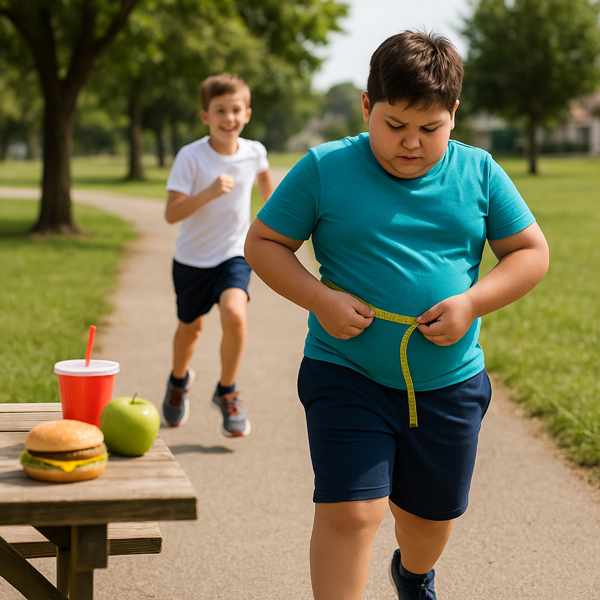
Childhood obesity is becoming a growing concern in many parts of the world.
Helping children achieve a healthy weight involves creating lifelong habits, not strict dieting or quick fixes.
Understanding Childhood Weight Gain
Children may gain weight due to a mix of factors, such as:
- Sedentary lifestyles
- High intake of sugar, fast food, and empty calories
- Emotional eating
- Affects hunger hormones and metabolism
Addressing the root causes helps create long-term solutions.
Signs Your Child May Need Help
Look for:
- Especially without growth spurts
- Low energy or reluctance to be active
- May feel self-conscious or tired
- Secretive snacking, constant hunger, or skipping meals
Always consult a pediatrician before making major changes.
Helping Kids Build a Balanced Lifestyle
Start with small, sustainable shifts like:
- Family meals with home-cooked food
- Make meals colorful and fun
- Switching soda for water or milk
- Incorporating daily movement
Make changes together so your child feels supported, not singled out.
Making Movement Fun
Ideas include:
- Increases daily steps naturally
- Setting screen time limits
- Builds skills and confidence
- Family fitness challenges
The goal is consistency and enjoyment—not perfection.
Emotional Support and Body Image
Kids need:
- Praise effort, not appearance
- Weight loss is a side effect of better habits
- Open conversations about food and emotions
- No matter their shape or size
When kids feel good emotionally, they’re more likely to make healthy choices.
Working With Experts
It may be time to talk to a specialist if:
- Guidance can prevent harm
- Your child expresses negative body image
- Weight gain continues despite healthy changes
- Support makes the journey easier
Final Thoughts
With the right tools, encouragement, and consistency, children can feel confident.
Start small, stay more information kind, and celebrate progress, not perfection.